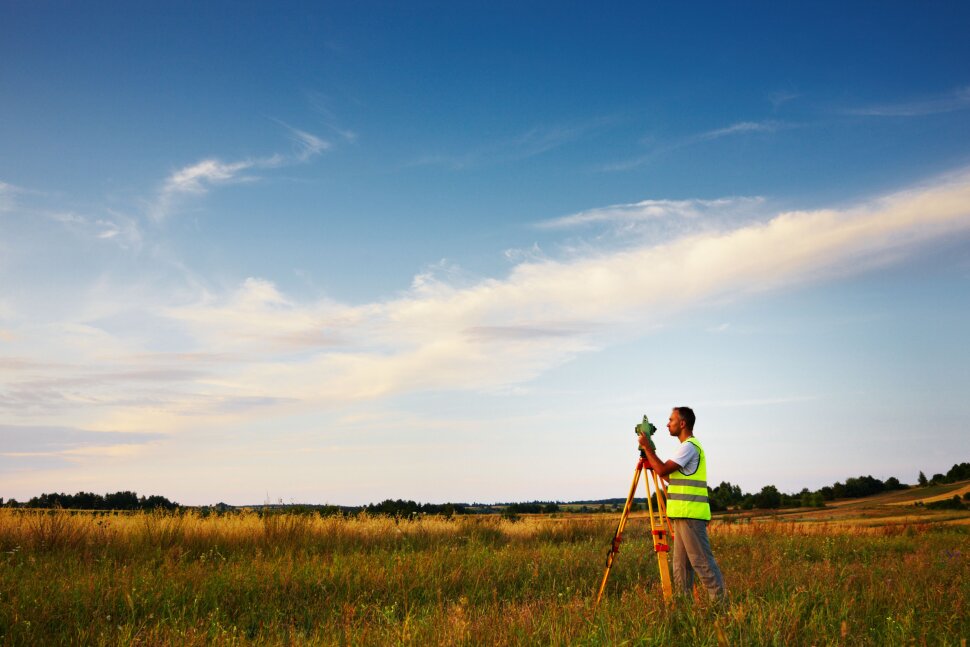The Do's and Don'ts of Buying Vacant Land
Finding your dream home isn’t easy. You'll spend a lot of time scouring online listings, attending open houses, and scoping out neighborhoods – and you may still come up empty-handed.
Maybe your dream home just doesn’t exist yet. In this case, building a home on a vacant piece of land may be the perfect option.
But before you get serious about laying a foundation, be aware that a land purchase may yield more surprises than buying a home – from easements and zoning restrictions to environmental conditions that could easily turn your dream build into a headache the size of a McMansion.
Whether you’re buying vacant land to build a home for your family or you hope to sell the plot for a profit in the future, follow these rules to avoid buyer’s remorse.
Here are the dos and don'ts of buying vacant land:
- Do work with an agent to find the land.
- Do have your finances in order.
- Do consider the value of homes in the neighborhood.
- Do take utilities and road access into account.
- Do consider incentives.
- Don't expect to get a loan.
- Don't skip the environmental tests.
- Don't forget the survey.
- Don't talk to the neighbors.
- Don't assume you can have the property rezoned.
Do Work With an Agent to Find the Land
Working with a real estate agent when you purchase a home helps you navigate the finer details like negotiations, due diligence and closing the deal. But when you’re purchasing land, it's important to hire an agent who has extensive experience negotiating land deals specifically.
A common mistake many land sellers and real estate agents make is to advertise a plot of land as having the potential to be subdivided, says Neville Graham, a Realtor specializing in land sales for real estate brokerage Compass in Beverly Hills, California. Buyers may be left with a plot of land that will yield less profit than expected, while sellers could easily face a lawsuit for false advertising.
“Use an agent who actually has a track record of representing both buyers and sellers for land transactions,” Graham says. “Don’t rely 100% on your agent – ask questions and do your own homework as well.”
Do Have Your Finances in Order
As with any home purchase, it’s important to know how much you can afford to spend before you start visiting properties. Know that land purchases are often done in cash because lenders are less inclined to provide funds for undeveloped land. Take a look at the amount of cash you have or can secure before purchase, and determine your budget that way.
Proof of funds is also important when making a cash offer, as it helps the seller feel confident that you have access to the money you claim to like a mortgage preapproval does when buying a house. If your cash is tied up in other investments, take it out prior to making an offer to avoid a sudden loss of funds from an unexpected disaster.
Do Consider the Value of Homes in the Neighborhood
One of the biggest draws of building your home is the ability to customize it, but be sure you’re building your dream home in a neighborhood with similar taste.
“The neighboring properties will ultimately affect the resale value of your new home, so it’s worth paying attention,” wrote Steven Bliss, editor of BuildingAdvisor.com, a website dedicated to helping people design, plan and build or remodel homes, in an email. “They also provide clues about your new neighborhood and community. So the more you know, the better.”
Do Take Utilities and Road Access Into Account
It’s easy to take for granted access to running water, electricity, and sewers when you’re buying an existing house, but with vacant land, these are not always a given.
“Depending on how developed the area is around the land, you want to know if it’s going to cost money for infrastructure to be run to that land or if it’s already serviced,” says Michelle Farber Ross, real estate broker and managing partner of MMD Realty in Fort Lauderdale, Florida.
Do Consider Incentives
In some situations, especially after a natural disaster, the local government may offer incentives in the form of tax breaks or easy planning approval to rebuild where homes have been destroyed. Cities in California where wildfires have occurred and coastal towns on the East Coast that experience hurricane devastation often wants to make sure that badly damaged houses are removed and new structures are built in their place.
Graham notes that Malibu, California, has reduced restrictions on building to help restore neighborhoods destroyed in previous fires. “There’s definitely more interest in buying vacant land, especially in the greater Los Angeles area, because of all the fires, as people are more interested in buying a vacant (property) that has a house on it than raw land,” he says.
But take advantage of those incentives as quickly as possible. Graham notes that city or county ordinances, over time, make it harder to build on vacant land – at least what you had in mind.
“Buy land to build on, not to hold, as city ordinances are being passed more regularly against vacant land, and the chances are high that these ordinances restrict the build-out, thereby devaluing the land that you own,” Graham says.
Don’t Expect to Get a Loan
A land purchase can’t be leveraged with a bank the same way a home purchase can, so you’ll likely have to pay cash if there’s no structure on the property yet. In many cases, the lender would cover 50% or less of the value of the lot.
You'll have a much better chance of being approved for a construction loan on the building you want to put on the land since the house you'll build serves as collateral on the loan.
You may qualify for a loan through the U.S. Department of Agriculture, which offers rural housing loans for moderate- to low-income households looking to buy, build or repair a home in rural parts of the U.S. Your income and the location of the lot have to meet certain standards to qualify, however.
Don’t Skip the Environmental Tests
Similar to a home inspection and background research on a house, a plot of land needs to be subjected to tests and checks to ensure you know what you’re buying and that you’ll be able to build on it.
Environmental tests check the soil for contamination from previous use. The site of a former gas station or auto body shop is more likely to have contaminated soil, for example, and residential homes can’t be built there. The land's potential for flooding or its poor soil conditions for the building is also a concern. These reports should be interpreted by a professional, Graham says – even an experienced real estate agent doesn’t have the technical knowledge to guarantee the results make the land a good investment.
Don't Forget the Survey
You’ll also want to have a surveyor look at your property to identify the boundaries. Especially if the land is in a neighborhood and has been vacant for years, neighbors may have encroached beyond the property lines, intentionally or not.
“It’s best to buy land that already has a completed survey, geology, and soils report,” Graham says. “Should they be outdated, you can always update or redo the reports.”
Don’t Talk to the Neighbors
While speaking to neighbors when you’re looking at a house may be a great idea to get a feel for the area, discussing your plans to build on a vacant lot can easily lead to organized opposition to your future dream home.
Graham says it’s common for neighbors who are used to having raw land near their homes to get upset when the status quo is about change and seek to keep you from building. “All they’re doing is gathering information to use against you,” he says.
Hold off on making friends with the neighbors until any home is built and you’re moved in. Otherwise, discussing plans could lead to a neighbor dispute before you’ve even broken ground.
Don’t Assume You Can Have Property Rezoned
Your local governing body will have zones, codes, and ordinances that limit what can be built on any property or require certain steps to build a sound structure.
For example, there may be required setbacks from the edge of the property, mandates to build a sea wall if you’re on the waterfront or a percentage of the land may be restricted from development. Getting an exception to the rule isn’t easy, and there’s a chance it could even be denied.
“Zoning is the first thing a prospective buyer should check as the regulations may limit their options in ways they find unacceptable. Let’s say they want to build a two-family, have an in-home business, or raise chickens, and this is not allowed within their zoning district,” Bliss says.
Rather than trying to rezone property, it’s best to keep your vision within existing limits. Seek land that will allow you to build the home you want, but know your plot’s restrictions before finalizing the plans.
Even if the zoning itself isn’t an issue, proper site plan approvals and permits take time – even years.
“The timeframe does vary a great deal by the municipality from a single day in a small town to 12 weeks or more in a highly regulated city – and that’s after you have submitted a full set of plans that were accepted on the first try – often not the case,” Bliss says. “Many building departments are short-handed right now and can no longer meet their typical window of 30 to 60 days. If you need to apply for a variance or special permit, or the town requires additional testing or a survey, plan on at least a few months before you can start prepping the site and building.”
Is It Worth It to Buy Vacant Land?
Purchase of vacant land could be the right move for you to custom-build a house or building that meets your needs, and it could be the perfect investment as you improve the property and allow its value to increase.
But before you become a landowner, be sure to thoroughly research the plot of land to ensure zoning, utility access, and building code for the area that will allow you to construct the property you want.
“My perspective is that buying vacant land is much more challenging than buying a house. When you buy a house, you generally know what you are getting, and know what questions to ask, And the home-inspection industry is standing ready to help you,” Bliss says. “With land, the number of potential pitfalls is enormous and it’s often unclear exactly what or whom to ask. There is no guarantee that you are going to be able to use the land as intended or build what you have in mind. So it’s best to add extra time for due diligence and bring in outside professionals as needed.”
With these details in mind, you can make your vacant land purchase worth the work.
You’ll want to have a surveyor look at your property to identify the boundaries. Especially if the land is in a neighborhood and has been vacant for years, neighbors may have encroached beyond the property lines, intentionally or not.
Source: Realestate.usnews.com


















